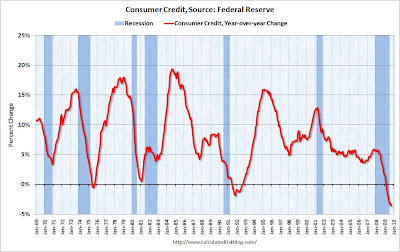Home » 2009 (Page 3)
Yearly Archives: 2009
Poll on Climate Change
Americans (at least WSJ readers) simply don’t believe human activities are responsible for climate change. An interesting contrast to Europeans. Food for thought for Copenhagen Climate Conference.
(click to enlarge; link to the poll)
Bernanke speech on economic recovery
Bernanke spoke to Economic Club in Washington DC. He does not expect the economy to recover rapidly, in other words, he expects anemic economic recovery.
Ten predictions of world economy 2010
Predictions from Global Insights, the Lexington (MA)-based US Economic Forecasting firm, a very reputable one, near where I lived previously.
Is gold in bubble yet?
Not if most common people even don’t know what the gold price is today. Bubble needs herding behavior: when everybody is rushing to get in, that’s where the gold bubble is about to burst. We are far from there.
Recession most likely ended in mid year
From Robert Hall at Stanford, also member of NBER recession dating committee (source: Bloomberg):
The improving labor market indicates the deepest U.S. recession since the 1930s may have ended, though it is too soon to say precisely what month it stopped, said the head of the group charged with making the call.
Payrolls fell by 11,000 workers in November, less than the most optimistic forecast among economists surveyed by Bloomberg, figures from the Labor Department showed today in Washington. The jobless rate declined to 10 percent.
“Today’s report makes it seem that the trough in employment will be around this month,” Robert Hall, who heads the National Bureau of Economic Research‘s Business Cycle Dating Committee, said in an interview. “The trough in output was probably some time in the summer. The committee will need to balance the midyear date for output against the end-of-year date for employment.”
Among the top indicators the group uses is payrolls, according to its Web site. In the third quarter, the economy expanded at a 2.8 percent annual pace after a yearlong contraction.
Choosing between the dates “will take some time,” Hall said. “We act deliberately.”
Harvard University professor Jeffrey Frankel, another member of the committee, said the most likely date for the recession’s end would be midyear.
“Mid-summer remains the best candidate for ultimate dating of the trough, probably July, or possibly June,” he said.
The recession began in December 2007, the group said in December 2008. It usually takes six to 18 months to confirm a contraction’s start or finish, according to the panel.
2001 Recession
Declaring the 2001 downturn over was complicated by continuing job losses. The group took until July 2003 to say that the slump had ended, 20 months after the fact.
Hall said he couldn’t rule out a further decline in the economy that would make it harder to date the end of the recession.
The estimates for the low points in unemployment and output “presume that there won’t be any new adverse shock,” Hall said. “There are some horror-story scenarios that could stand in the way, so I don’t see the point of forecasting. We just wait until we are ready.”
Frankel said a second leg down for the economy would pose other difficulties for the committee.
“In the hypothetical event that the economy were to tank again in early 2010, would we call that a new recession or part of the same recession?” he said. “Probably the latter. Until we can answer that question the other way, we won’t call the trough. So it will be awhile longer.”
Hopenhagen
This is a big week here in Copenhagen for the COP15 climate summit of world leaders.
This hour On Point on America's public opinion toward climate change and global warming.

Fierce battle on gold
The bruising battle between governments and investors over gold, reports WSJ:
One of the fiercest battles in the global financial system is being played out in the gold market. Does Friday's sharp drop in the gold price say much about who will win this fight?
On one side are central banks and governments, which are printing money and running up large fiscal deficits. On the other are investors who think such actions could debase paper currencies, and are buying gold to protect against that outcome.
Looking at Friday's 4% slide, even gold bugs would agree that a correction was to be expected for an asset whose price is up 56% in the past 12 months.
But gold bears might look at the trigger for the rout, a better-than-expected U.S. jobs number, and conclude that the economy is recovering and governments can soon wind down policies that benefit gold.
Clearly, a spell of gold weakness is likely. Not only has the run-up been intense, central bankers recently have sounded slightly tougher on monetary policy.
But the beauty of gold is that it is almost alone in providing protection for scenarios in which government stimulus fails or backfires. If economic weakness returns, the government's default response likely will be cranking out more money and running up bigger deficits. Alternatively, economies may take off too quickly, and high inflation returns. Both outcomes are extremely gold-friendly.
The gold trade gets really interesting if gross domestic product expands, but only sluggishly. If governments are willing to tolerate that, allowing the economy to adjust on its own, gold could suffer. After all, the best way to swat the gold bugs is to let the markets have their way.


